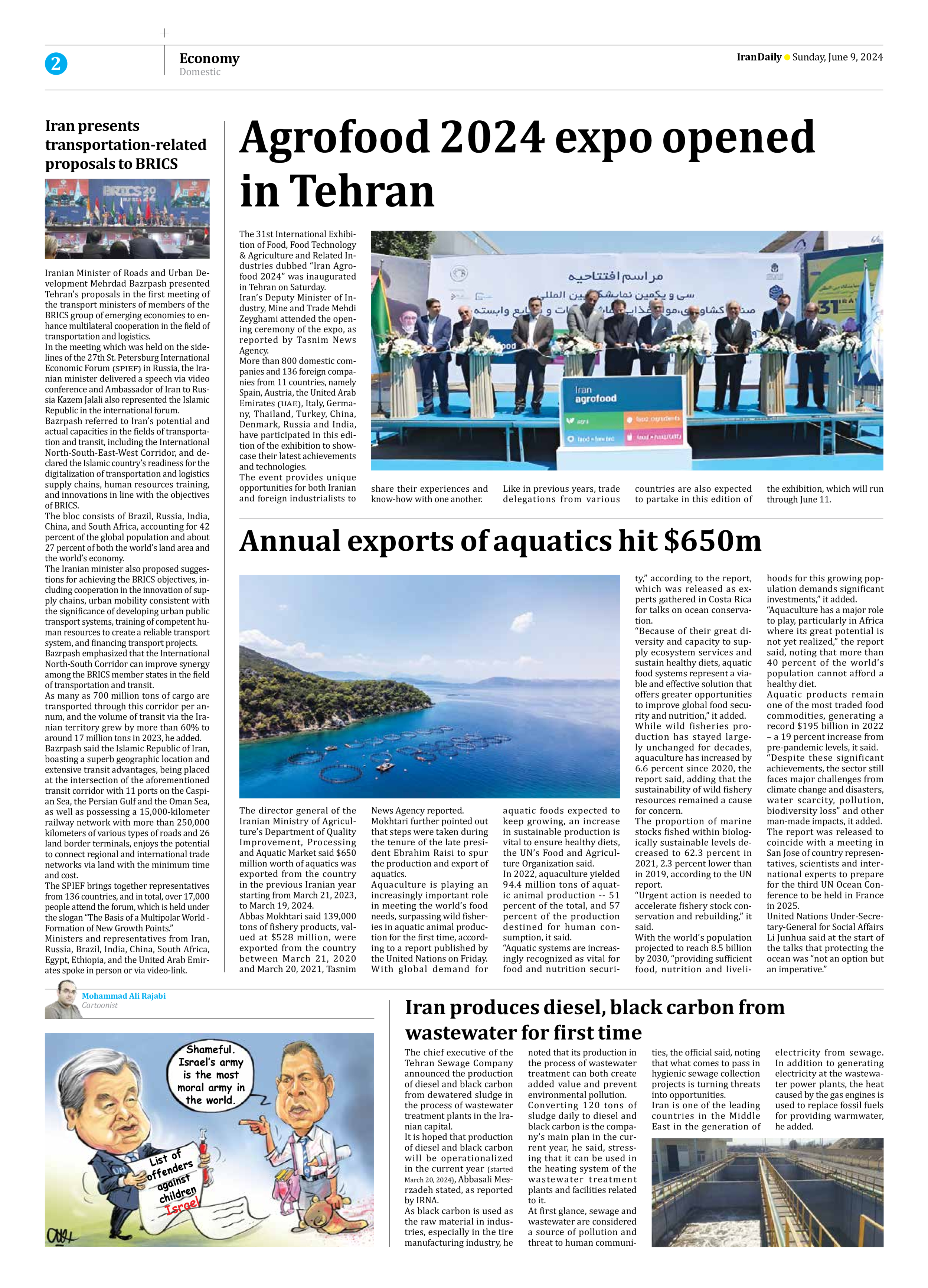
Iran presents transportation-related proposals to BRICS
Iranian Minister of Roads and Urban Development Mehrdad Bazrpash presented Tehran’s proposals in the first meeting of the transport ministers of members of the BRICS group of emerging economies to enhance multilateral cooperation in the field of transportation and logistics.
In the meeting which was held on the sidelines of the 27th St. Petersburg International Economic Forum (SPIEF) in Russia, the Iranian minister delivered a speech via video conference and Ambassador of Iran to Russia Kazem Jalali also represented the Islamic Republic in the international forum.
Bazrpash referred to Iran’s potential and actual capacities in the fields of transportation and transit, including the International North-South-East-West Corridor, and declared the Islamic country’s readiness for the digitalization of transportation and logistics supply chains, human resources training, and innovations in line with the objectives of BRICS.
The bloc consists of Brazil, Russia, India, China, and South Africa, accounting for 42 percent of the global population and about 27 percent of both the world’s land area and the world’s economy.
The Iranian minister also proposed suggestions for achieving the BRICS objectives, including cooperation in the innovation of supply chains, urban mobility consistent with the significance of developing urban public transport systems, training of competent human resources to create a reliable transport system, and financing transport projects.
Bazrpash emphasized that the International North-South Corridor can improve synergy among the BRICS member states in the field of transportation and transit.
As many as 700 million tons of cargo are transported through this corridor per annum, and the volume of transit via the Iranian territory grew by more than 60% to around 17 million tons in 2023, he added.
Bazrpash said the Islamic Republic of Iran, boasting a superb geographic location and extensive transit advantages, being placed at the intersection of the aforementioned transit corridor with 11 ports on the Caspian Sea, the Persian Gulf and the Oman Sea, as well as possessing a 15,000-kilometer railway network with more than 250,000 kilometers of various types of roads and 26 land border terminals, enjoys the potential to connect regional and international trade networks via land with the minimum time and cost.
The SPIEF brings together representatives from 136 countries, and in total, over 17,000 people attend the forum, which is held under the slogan “The Basis of a Multipolar World - Formation of New Growth Points.”
Ministers and representatives from Iran, Russia, Brazil, India, China, South Africa, Egypt, Ethiopia, and the United Arab Emirates spoke in person or via video-link.







